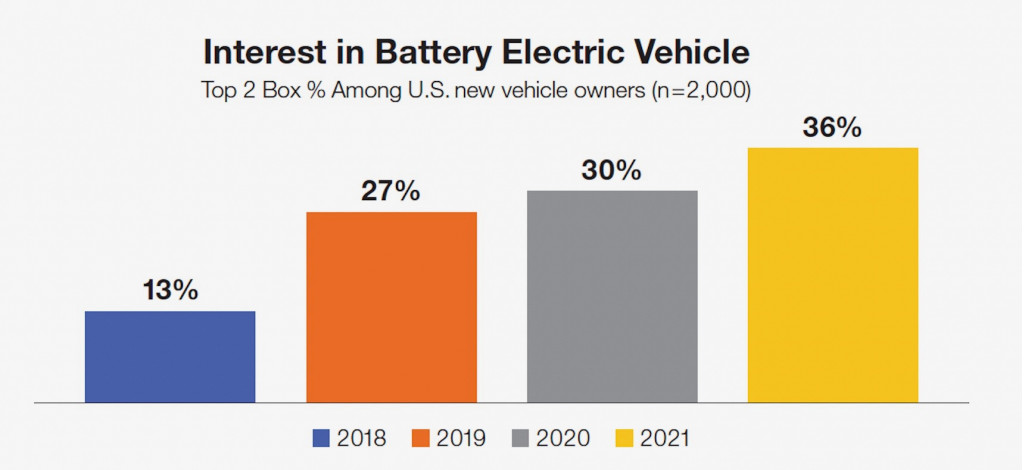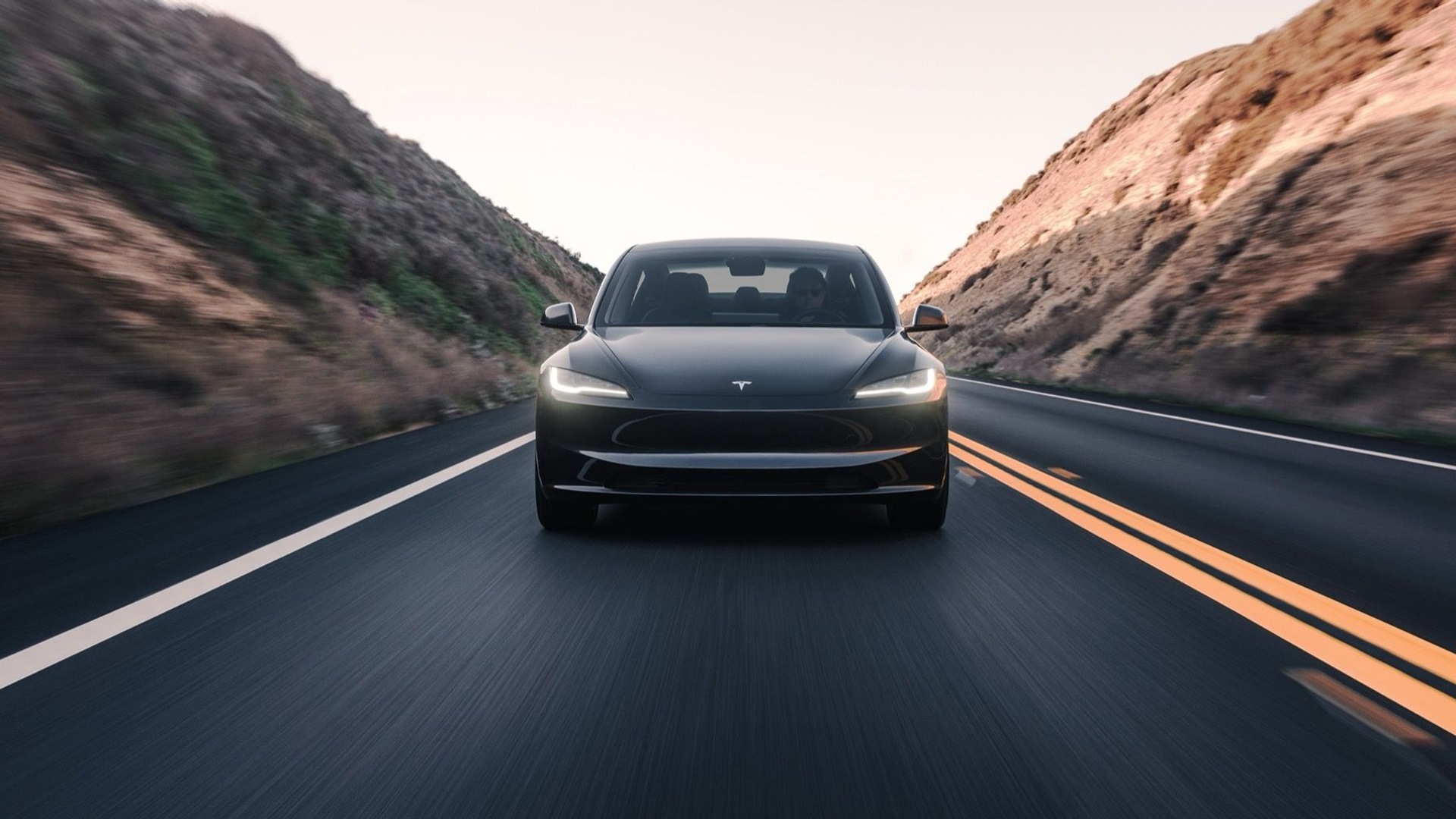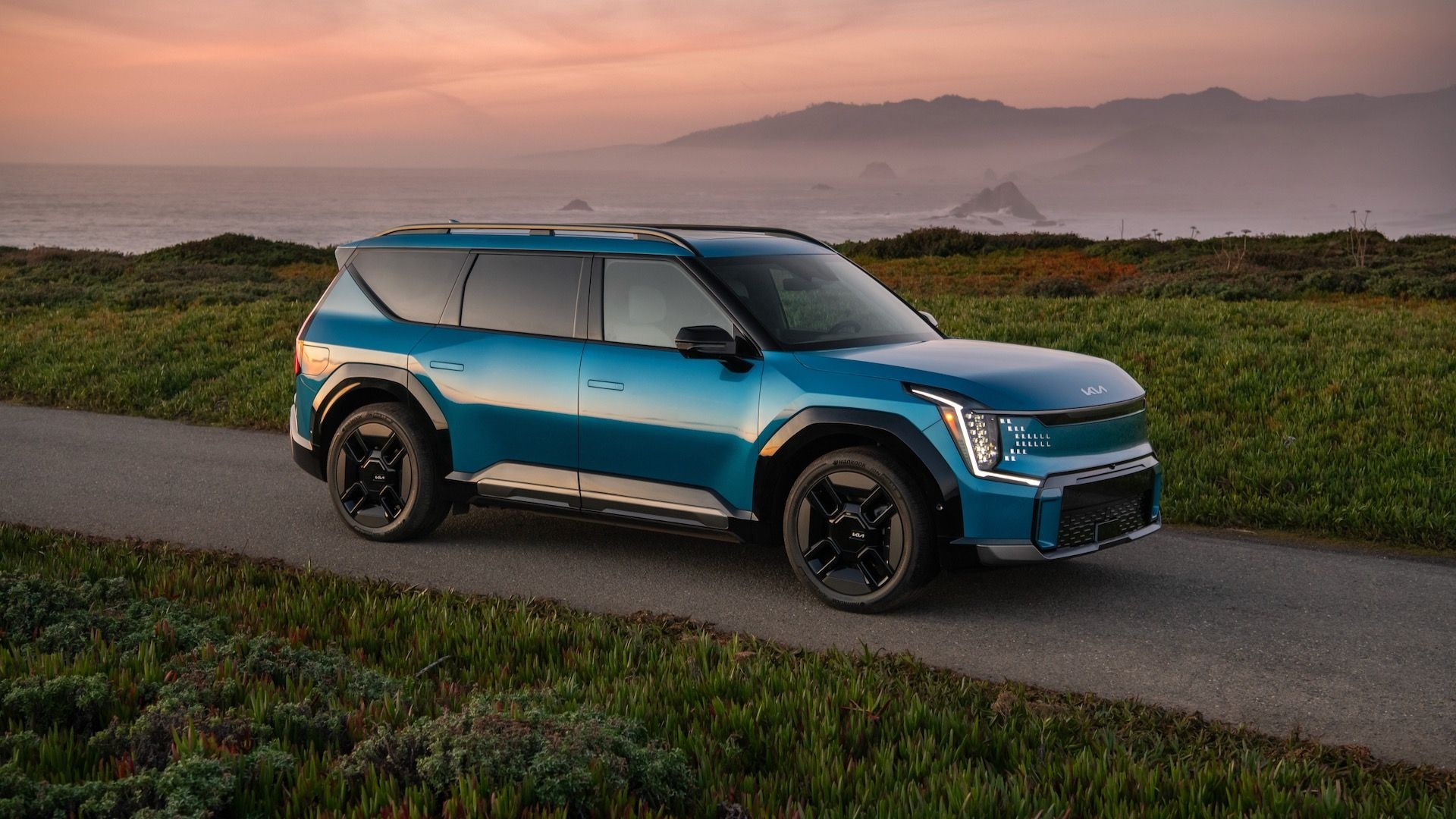Electric cars may be nearing a tipping point for mass adoption in the United States, according to a new Ipsos study.
Interest in EVs has tripled since 2018, with over a third of U.S. consumers now willing to consider an EV, according to the study. That increased interest is happening at the perfect time, as rising gas prices could fuel (no pun intended) more serious consideration of EVs, Ipsos noted.
Other factors could help as well. Automakers are launching a larger number of models, with many, such as the 2022 Ford F-150 Lightning, competing in the most popular new-vehicle segments. Analysts also anticipate that plans to expand incentives and charging infrastructure included in pending federal legislation will help boost adoption.

Interest in EVs among U.S. new-car buyers (from Ipsos study)
Barriers remain, however. Ipsos predicts that a lack of familiarity with electric vehicles will continue to keep consumers away. Survey respondents listed battery life as the top barrier to considering an EV, showing that consumers are still unfamiliar with battery technology, Ipsos noted.
The second and third most commonly cited issues were driving range and recharging time (rather than number of charging stations), respectively. Affordability was ranked fourth, a change from early 2020, when Ipsos found that cost was the biggest barrier against EV adoption.
Since then, the coronavirus pandemic appears to have changed attitudes toward EVs. Ipsos said in October 2020 that Americans' interest in EVs had grown since the start of the pandemic. It's also worth noting that gas prices dropped last year—and not even that stopped EVs' growth in market share.












